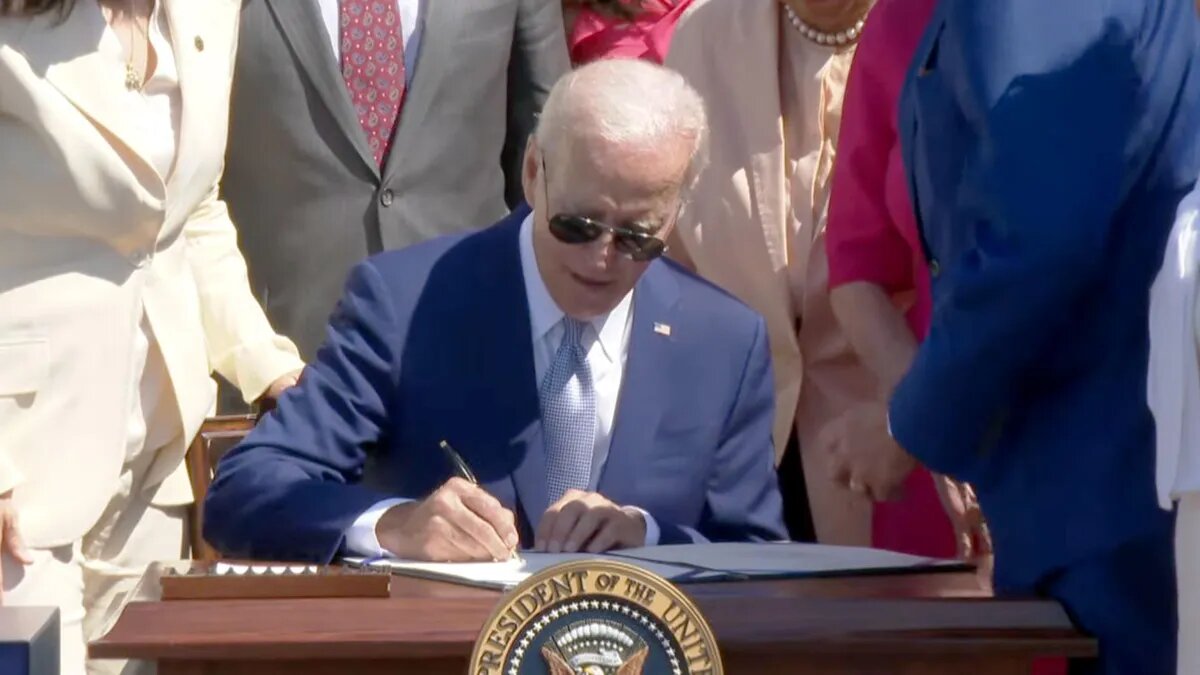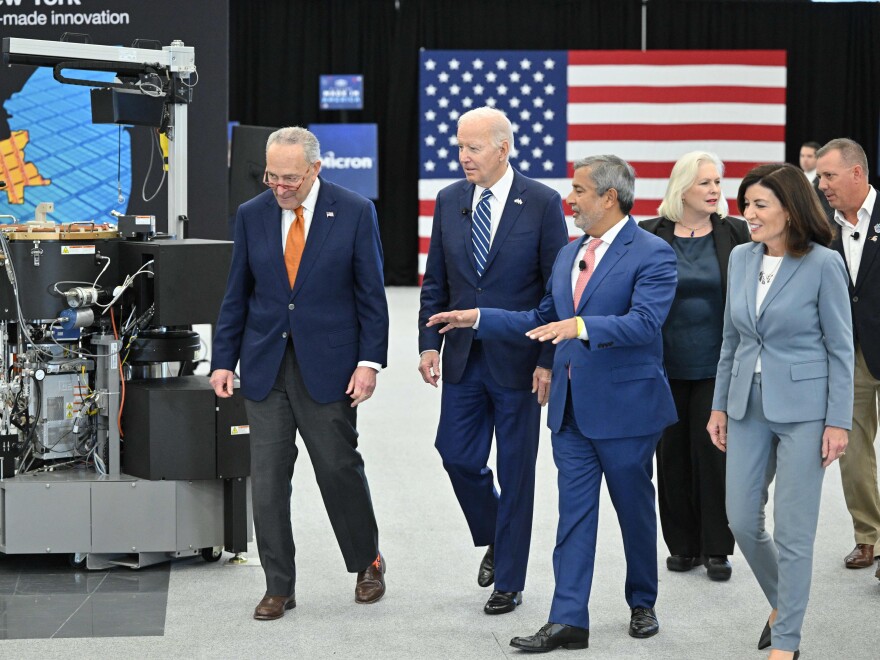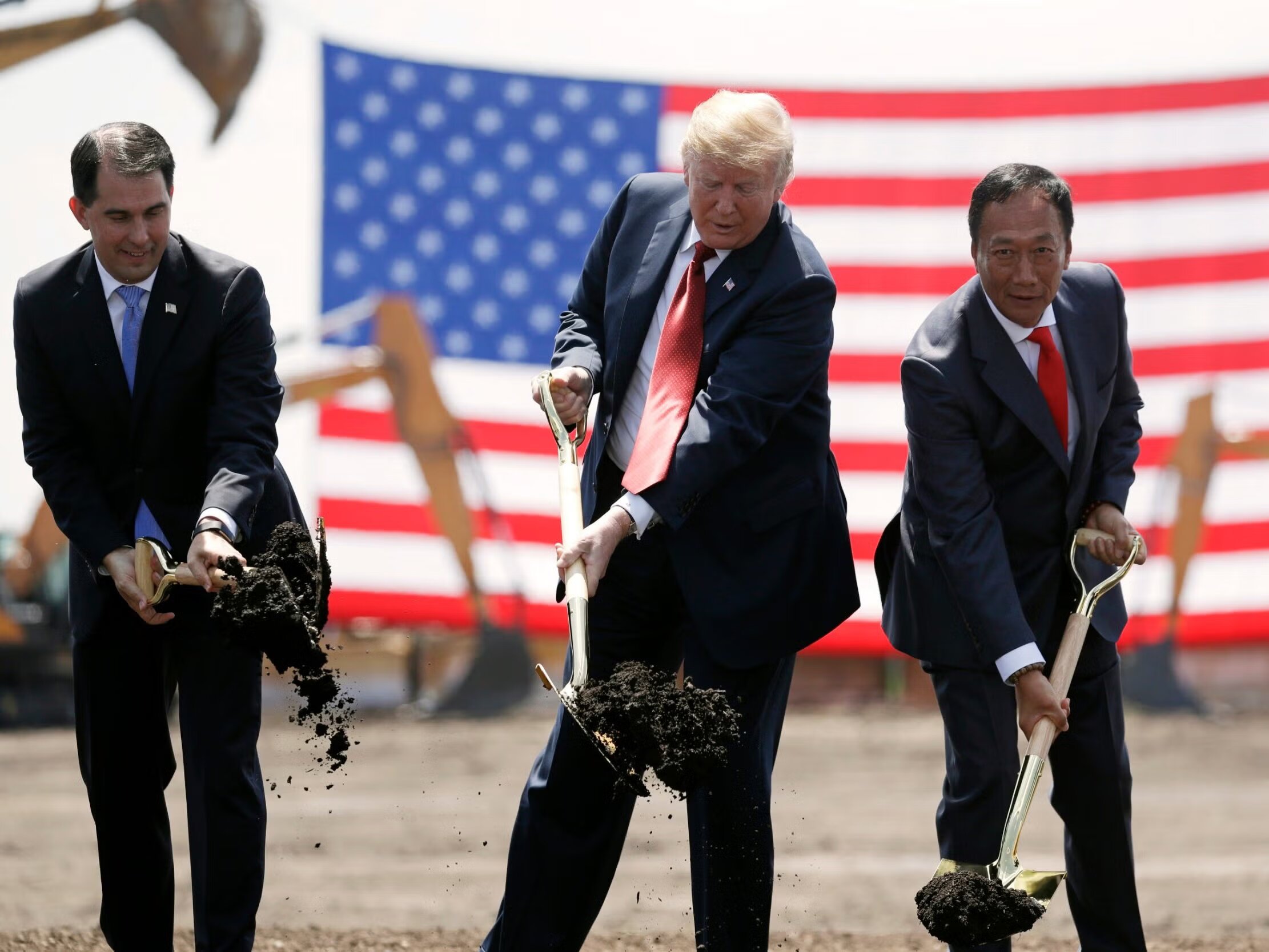President Joe Biden’s economic narrative presents a promising tale for future voters, albeit less compelling in the immediate context of 2024.
This Thursday, President Biden will journey to upstate New York to commemorate Micron Technology’s ambitious plans to establish a campus of cutting-edge computer chip factories, made feasible in part by government backing.
However, the fruition of the initial phase of this venture is slated for the years 2028 and 2029, with further timelines for subsequent factories.

In the face of a potential rematch with Republican contender Donald Trump, Biden finds himself advocating for a vision of the U.S. economy that remains largely prospective.
This comes at a time when voters’ primary concerns revolve around persistent pressures stemming from high inflation, contributing to a general discontent with Biden’s economic performance.
Biden’s campaign hinges on the promise of tomorrow, contrasting sharply with Trump’s appeal to a nostalgic past when American manufacturing reigned supreme globally.
The President urges voters to consider the retrospective lens through which historians will view his presidency. “We’re going to look back on this 20 years from now and be talking about what a revolutionary period this was for the country,” Biden remarked to a gathering of unionized electricians.
This message of long-term vision stands out in an age characterized by instant gratification. Unlike the era when Biden embarked on his political journey in the 1970s, today’s populace can access music and videos instantaneously, order pizza with a swipe, or connect with friends across vast distances with a simple text message.

Meanwhile, Trump paints a picture of impending doom under Biden’s policies, warning of job losses in gasoline-powered auto manufacturing and the inevitable shift of work to China.
He recently criticized the rising value of the dollar, fearing it would render American-made goods uncompetitive on the global stage.
The Biden administration’s role in kickstarting the Micron project underscores its commitment to bolstering domestic manufacturing.
By allocating $6.1 billion in government support, including funding for a memory chip factory in Idaho, Biden aims to stimulate economic growth and technological advancement.
Furthermore, investments in renewable energy projects and initiatives like the 2022 CHIPS and Science Act have propelled factory construction spending to unprecedented levels.
Chip factories planned by Intel, TSMC, Samsung, and others are poised to drive innovations in artificial intelligence and electric vehicles, reinforcing Biden’s vision of securing America’s economic supremacy.
Despite decades of hollow promises regarding a manufacturing renaissance, Schumer remains optimistic about the Micron project’s potential.

He contrasts it with Trump’s failed Foxconn venture, expressing confidence that this time, the United States will surpass China in critical technologies, thereby retaining jobs and expertise within its borders.
As Schumer aptly puts it, “We want to be proud of our economy.” This renewed sense of pride, fueled by technological advancements and strategic investments, may indeed redefine America’s economic terrain for years to come.
